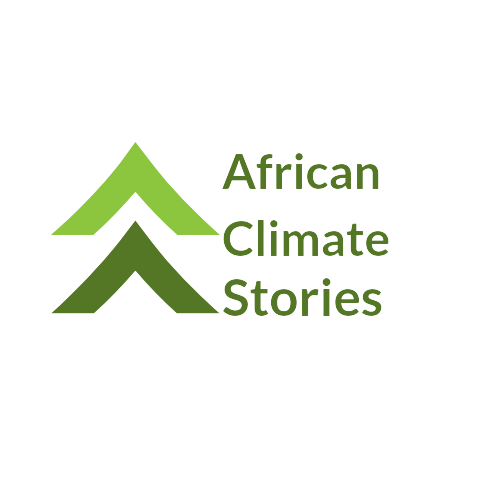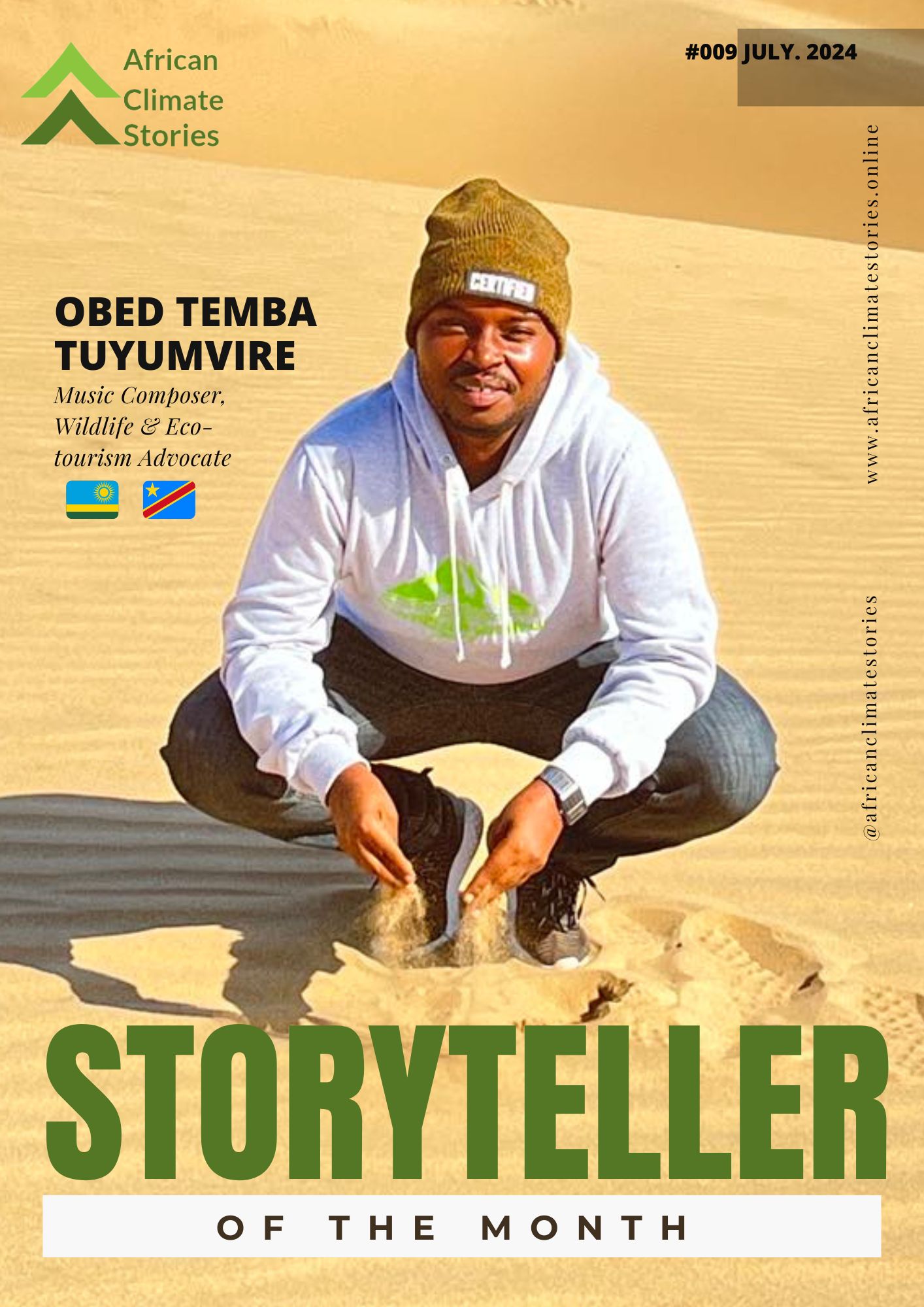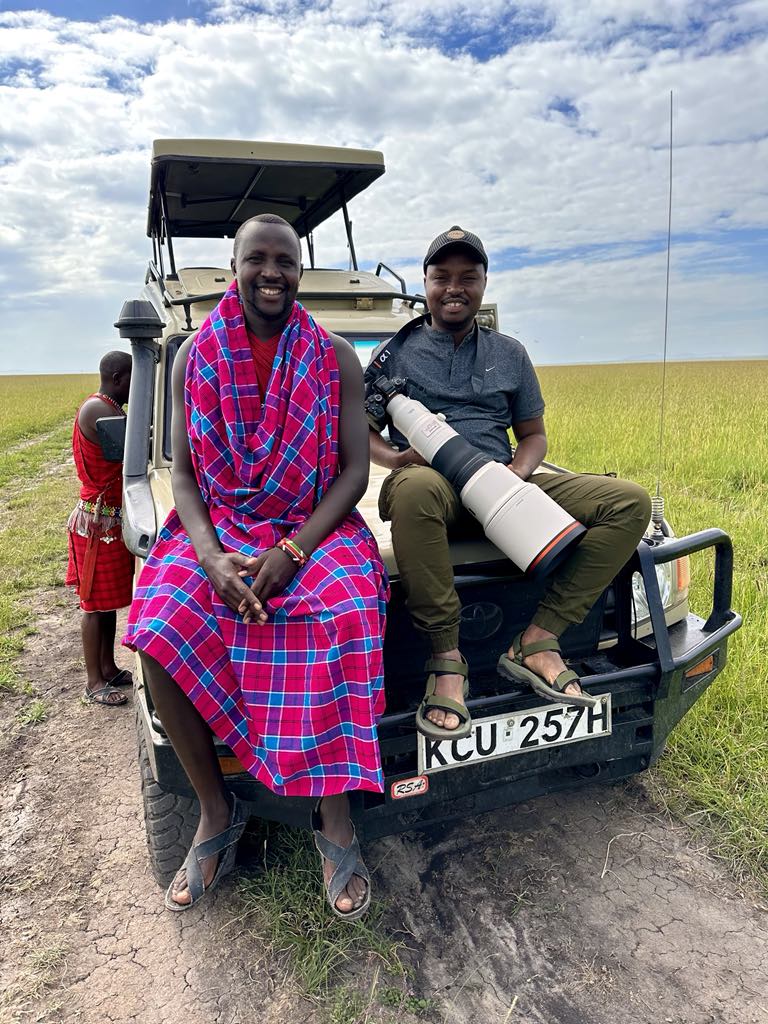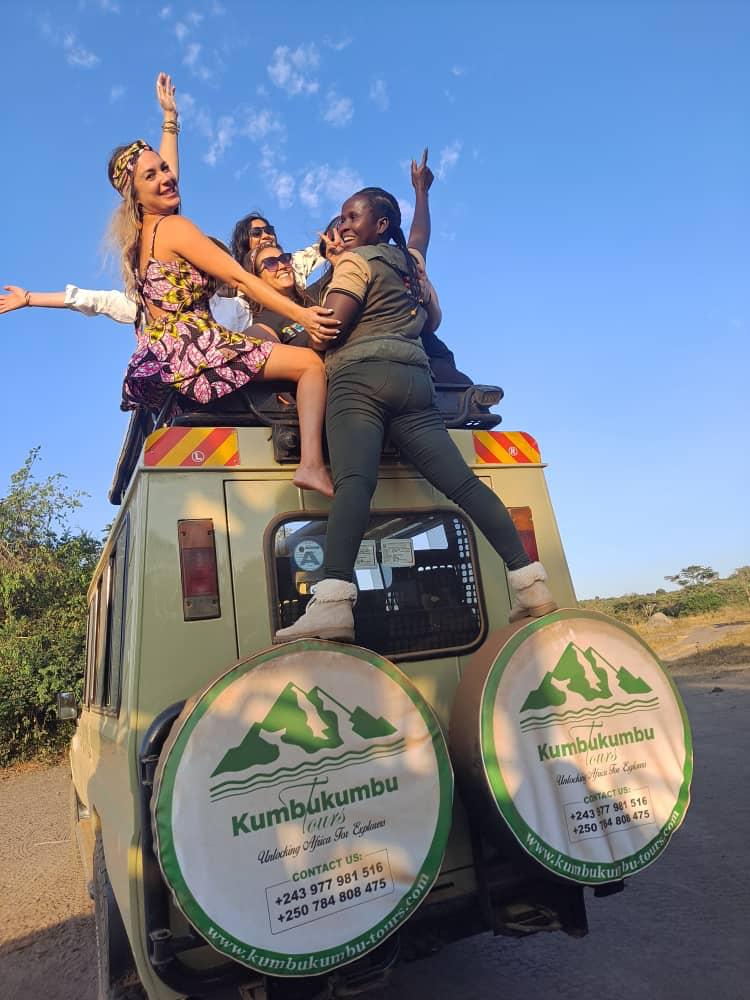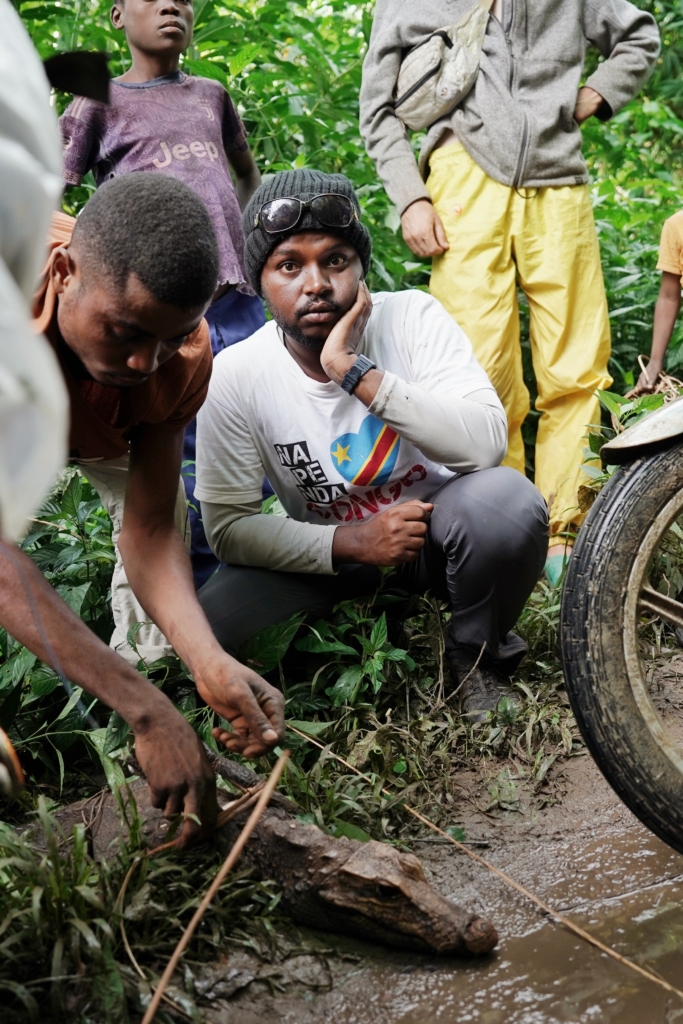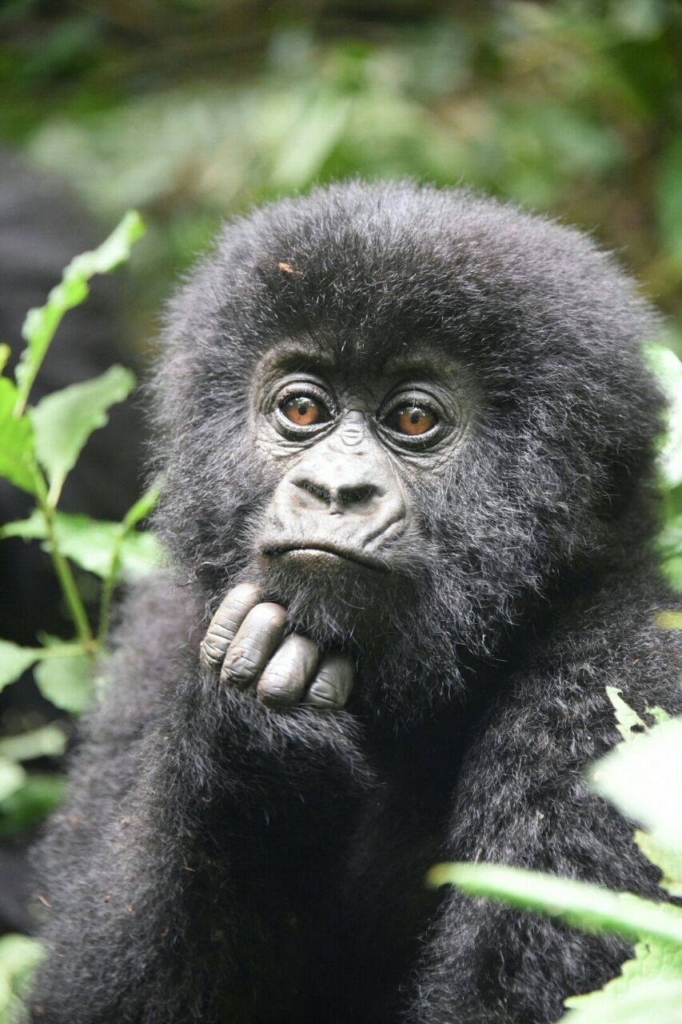It’s that time of the month again when we share with you our interview with someone using storytelling and some form of creative expression to advocate or create awareness for one environmental issue or the other. This month we went all the way to fine our climate storyteller at the intersection of two African Countries. Obed Temba Tuyumvire is a national of the Democratic Republic of Congo living in Rwanda. Follow his story to know why. Let’s dive in…
Who is Obed Temba Tuyumvire and explain to us why we have found you at the intersection of two African countries?
The colonial border lines between the Democratic Republic of Congo, Rwanda and Uganda transformed my mother land into a no-man’s land and divided my family into three different countries citizens. My village was from then engulfed and lost in the first created National Park of Africa, The Virunga National Park. That situation resulted into a serious civil war that pushed my small family into refuge until the massacre of some of my family members by Rwandan genocide perpetrators. My chaotic young life surviving multiple refugee settlements forged me into the resilient man that I am today. I got inspiration from the horrors that my grandfather endured in colonialist Congo. And so after my teenage age, I tried to go back to find the ruined lands but I was kidnapped by modern day rebels whom I later miraculously escaped. From then, I serendipitously met a couple from Illinois who had lost their way in route to Virunga National Park, that forever changed my life. From the ashes of my story, a new beginning emerged for me. From these ruins of a painful past, I preached for a radiant future to the hopeless and do my best to influence my society through different initiatives. I am currently the CEO and founder of Kumbukumbu Tours, – selling Eco-tourist expeditions across Sub-Saharan African countries. In addition, I am also the co-founder and CEO of the Congo Rainforest Fund, a nonprofit NGO conserving and restoring the rich flora and fauna of The Democratic Republic of Congo.
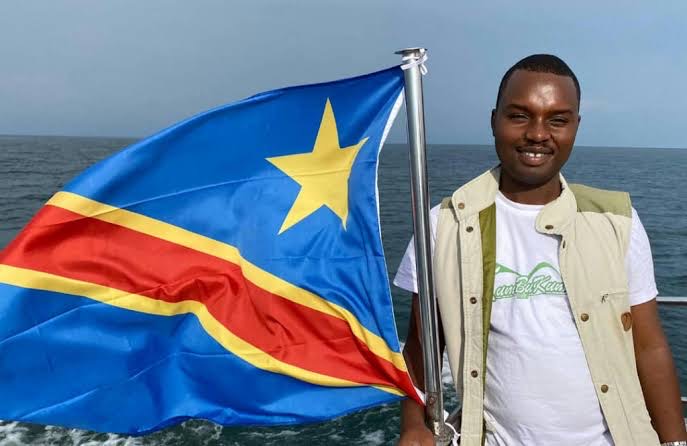
How did surviving multiple refugee settlements shape your perspective on resilience and hope?
Surviving this extreme refugee setback, living more than a decade in a tarpaulin, insufficient in quality and quantity meal taught me to be patient is front of a difficult situation, to endure hours and days of starvation while working hard for a decent mean to celebrate with intense joy. In such life conditions our differences were meaningless. War, poverty and hunger have no ear, no conscience and nor religion my father used to repeat… Without having committed any faults, without any religious, ethnic or economic antecedents, killers came; they brought misery to each and every one in my village…Everyone was affected; tolerance was an automatic value. we all had to survive and transform wound into scars everyday. As an adult, I look at these scars like medallions in a competitive race, in a desperate society.
How do you integrate your personal history and cultural heritage into your business and advocacy work?
The entire time spent in refugee settlements was an occasion for me to learn about the root causes of our misery and my ultimate dream was to find a platform where to tell the details a community story twisted by belligerents at the same time fighting for dignified life. I stepped out as a volunteer guide with an intense motivation. My first visit to the Virunga National Park destroyed by war as a guide confirmed my conviction for this profession. On the ruins of the painful past, I wanted to build a radiant future for myself and my community; It shone in me with hope of belonging to a society of conviviality and respect for the right to a healthy environment.
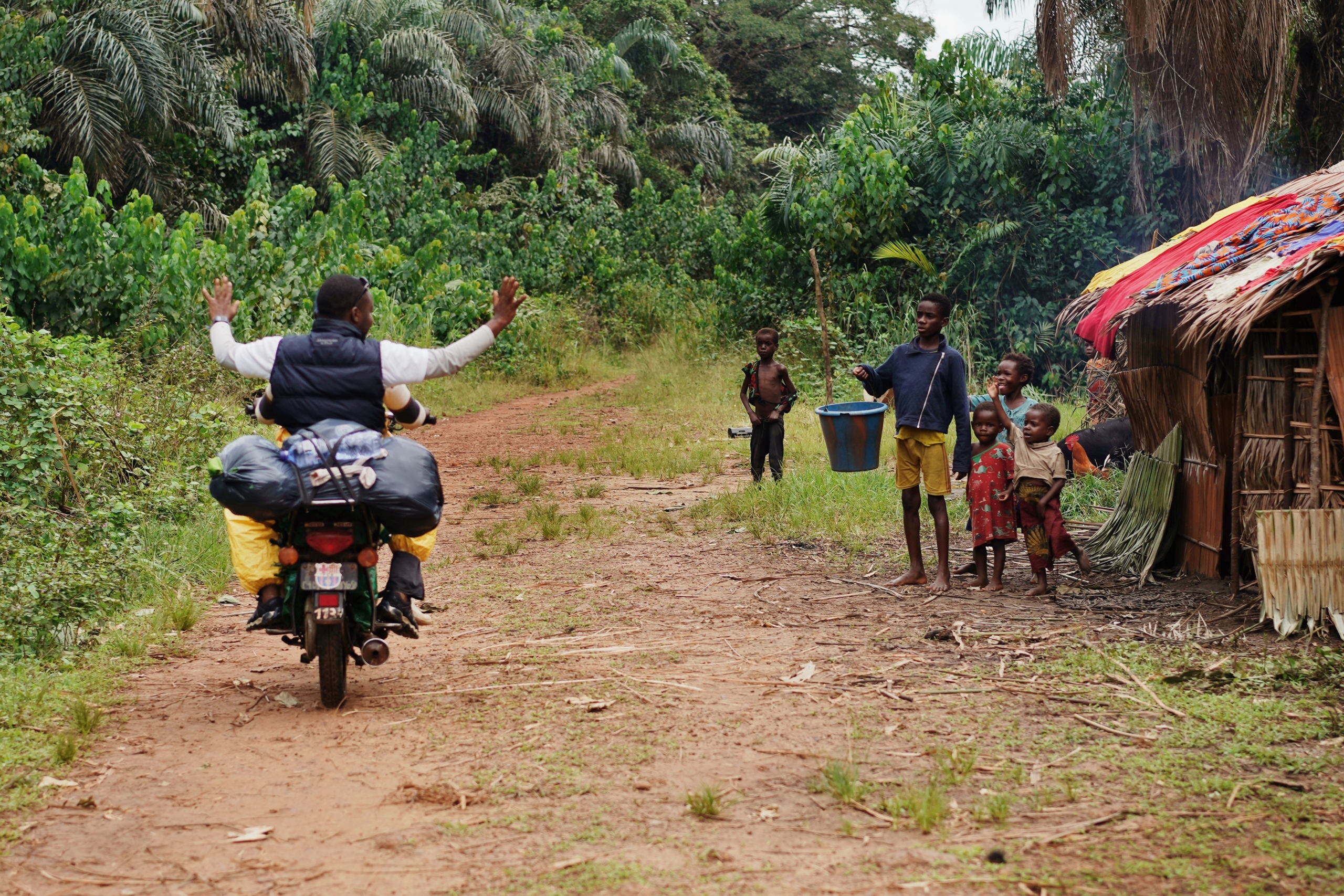
The ashes of this brutal story are the silt that fertilizes my dreams of a peaceful and succulent future, a future without the crackle of bullets or displaced communities. I use these memories of my troubled childhood as a basis for my projects to create a new, equitable society.
Obed Temba Tuyumvire
Music composer & Environmental justice and conservation ADVOCATE
Can you tell us more about the Virunga National Park and why it holds such significance for you?
My grand-grandfather Nsana can be the right emblem of the relationship between the wild beasts that inhabited the Virunga Mountains and the natives who lived in harmony with mountain gorillas. Well, at least until the unfortunate arrival of the white man. With the succession of stories including the creation of the Virunga National Park in 1925, my family woven through different dramas that determined the fate of our entire community: the descendants of Nsana, the noble herdsman who first settled in these volcanic mountains at the end of the 18 Century.
From Nsana, Rukurungu—father of Sebahunde – was born. From Sebahunde, Karamira was born, from Karamira, Nduhura was born, the progenitor of my direct grandfather Nshizirungu. The colonial era drove out this herding clan from their land in the Virunga Mountains, marking the beginning of a conflict of sovereignty and identity across the borders of the Democratic Republic of Congo Uganda and Rwanda. My generation embodies the spirit and the souvenirs of this natural heritage in which volcanoes converge around a magnificent forest populated by a variety of species of animals, particularly mountain gorillas. When the colonists left, this heritage was unfortunately disrupted by an identity crisis that resulted in chronic violence. Repeated massacres caused the displacement of uncountable people. Even now, we still swarm in refugee camps.
Now we (the new generation) have come to realize that there are two kinds of predators: wild animals and wild animals armed with guns. It is unfortunate that we are losing the powerful testimony of our grandparents that could serve as a model for life: the conviviality between humans and animals.
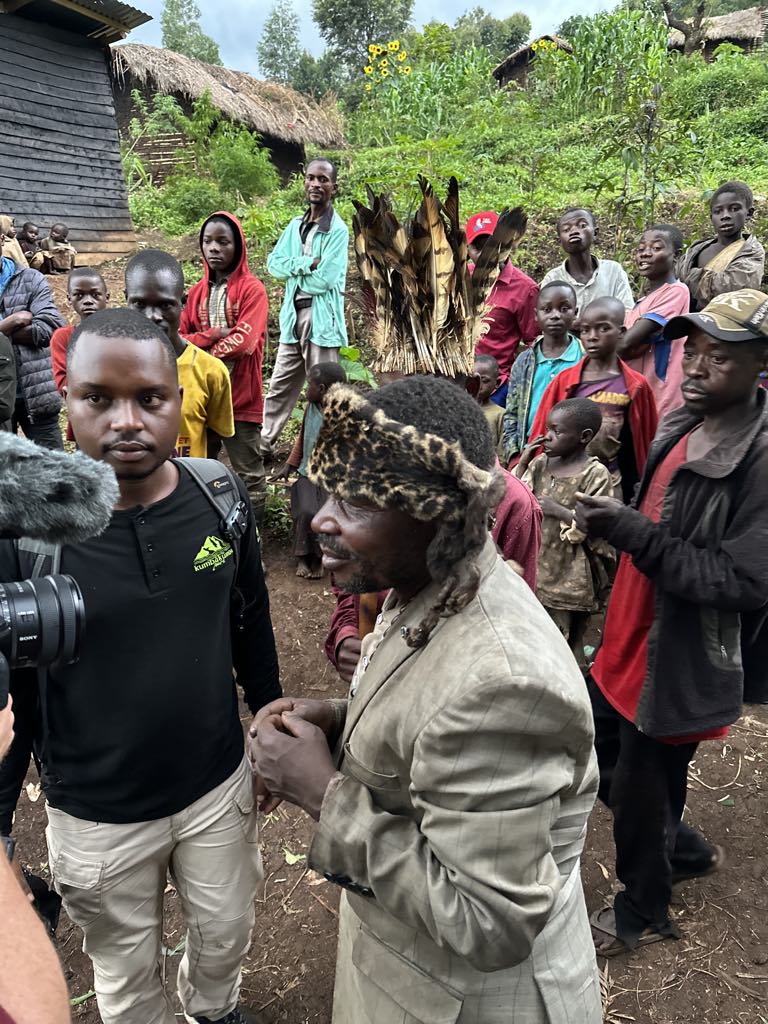
How did your experiences inspire you to start Kumbukumbu Tours and the Congo Rainforest Fund?
The ashes of this brutal story are the silt that fertilizes my dreams of a peaceful and succulent future, a future without the crackle of bullets or displaced communities. I use these memories of my troubled childhood as a basis for my projects to create a new, equitable society. My traditional customs draw on the intrinsic values of the African philosophy of life: we must seek to give peace if we want to gain it. It is necessary for communities around the Virunga Park to overcome the impulse to negate one another, think progress and business. With this freedom and basic right to everyone, we are dreaming to rebuild our destroyed Virungas ecosystem. By owning, keeping and sharing this story I hope to inspire financial investment in the Virunga, whereby tourists can visit the park and be a source of income to be used for protecting its people and environment. Without the contribution of us (the Inhabitants) who live near the park, it is not easy to preserve this universal heritage. The problem of the conservation requires a synergy of good will, effort, and active participation of all actors animated by a sense of ecological wellbeing.
What inspired the composition of the Gorilla Song, which was recently launched at the Hollywood Climate Summit in Los Angeles and what message do you hope to convey through it?
In a sense of synergy, engaging the entertainment industry in conservation is crucial. Through the Song, I wanted to give a piece of an academic lesson on what is a gorilla, what is this magnificent cousin of us on the way to extinction. The gorilla song is and will remain an asset, a tool, to bring the attention of big crowd and bring an added value to the campaigning efforts.
What role has the Gorilla song played in advocating for endangered species?
A good number of people learned about them, it was an innovation in the conservation marketing tools. People were educated and will keep it as a memorial to all the efforts invested by several actors to keep these species alive while transcending generations.
What was the experience like launching the Gorilla song at the Hollywood Climate Summit?
Launching the song during the Hollywood Climate Summit was a magic occasion to talk gorilla stories, it was an innovation by its kind. After the last evening of the summit, we took the occasion to invite everyone to the launching venue at one of the spots around Venice Beach next day. Before singing gorillas, I took a good moment to go through my story and the gorilla stories, giving an overview on why they matter a lot. The song was performed by the artist DAVE MUNTNER and was launched with other similar subjected songs in one Album among them: Dancing with Penguins, and Running with Cheetah, in the honor of other species conservation efforts. My dream is to see the Gorilla song reach a huge audience and even become as popular as “Toto-Africa.”
How do you see the relationship between eco-tourism and environmental conservation in your work?
For me there is no minus between Eco-Tourism and Environmental Conservation. The two are twins, and to sustain and keep our environment, communities need to survive as well. Tourism as a business is one of the biggest industries that can destroy or sustain our environment, we just need to use it as a tool to empower local communities following the conservation ethics and code. In 2019 the government of Rwanda has used 5.6% from the tourism revenue to build schools, medical centers, clean water infrastructures around the Volcanoes (Virunga in local language) National park. More that 100 poachers have integrated the park rangers in the same park team because tourism has created those job vacation for them.
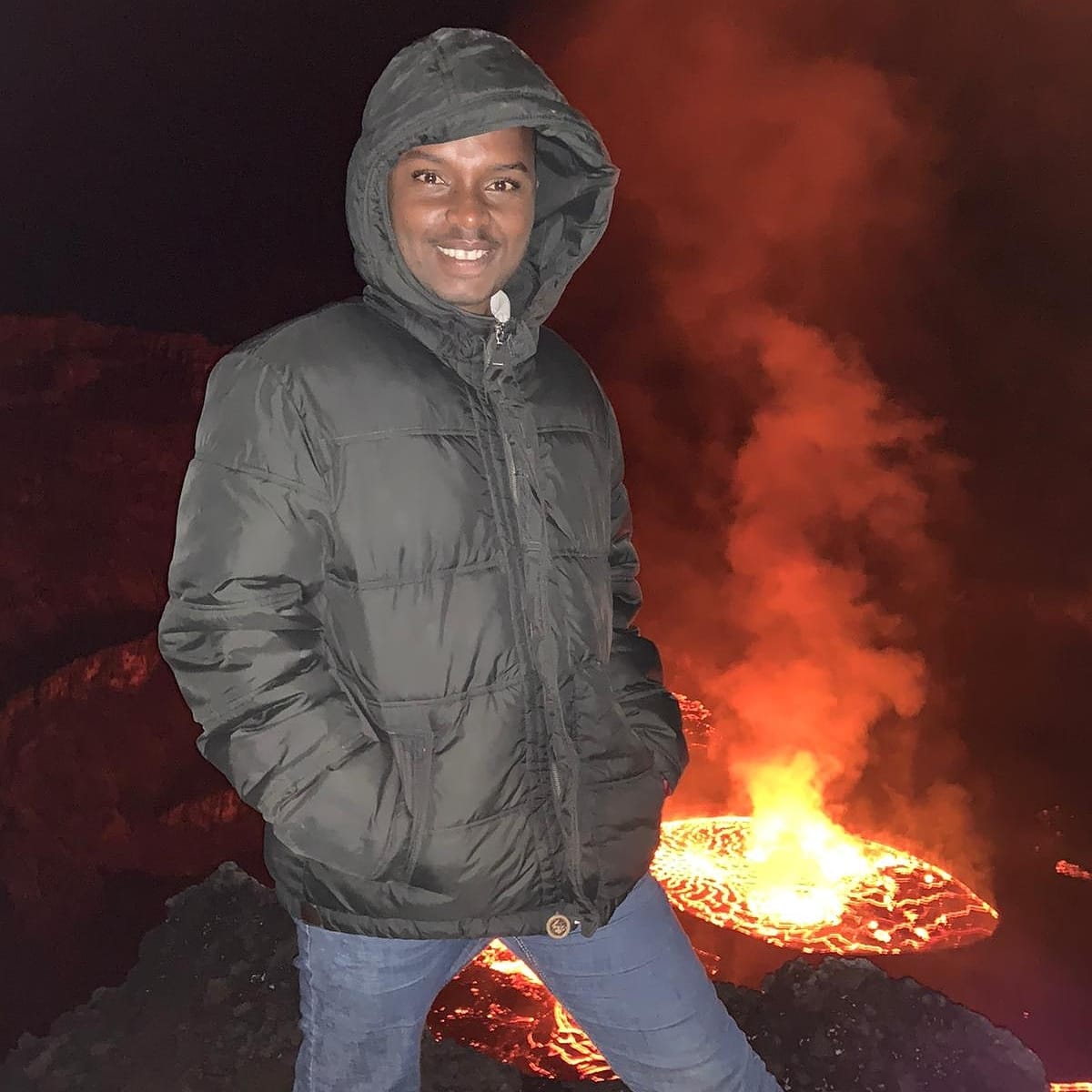
What are some of the eco-tourist expeditions offered by Kumbukumbu Tours and what makes them unique?
Yes, one of our most famous expeditions is to explore the Congo Basin within 30 days. The money paid is mostly shared among the very local and remote taxi, restaurant and home stays, 25% of the budget used to support local schools or build water wells where they need them.
How can people support the Congo Rainforest Fund and get involved in your conservation efforts?
You can get involved to support these projects by:
- Adopting a baby gorilla from Kahuzi-Biega National Park
- Habituate a wild gorilla family
- Supplying park rangers with equipment kit ( shoes, uniform, water bottle, sanitaries…)
- Sponsor pygmies community children at school
- Sponsoring a clan water well in the neighborhood of Kinshasa
- We also seek for partners and sponsors to organize the very first gorilla birthday party in 2025
Can you tell us about any upcoming projects or initiatives you are working on with Kumbukumbu Tours or the Congo Rainforest Fund?
We are working on a big project of research and data analysis on the montane Forest of Itombwe, and Preparing for our Gorilla Birth Day Party.
What advice would you give to other entrepreneurs and advocates looking to combine business with social and environmental impact using creative storytelling?
Your effort and success will only be valued by the impact you make on your pathway, climate change is real.
We hope you enjoyed this piece.
If you will like to be featured as one of our Climate Storyteller’s of the month or want to recommend a friend? Kindly use this link to indicate interest or share with friends who qualify: African Climate Stories – Storyteller of the Month.
